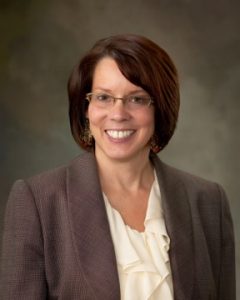 Susan Cosio is an ordained Covenant pastor, spiritual director and board-certified chaplain. She serves on the Pacific Southwest Conference (PSWC) Executive Board and is the creator and facilitator of a contemplative retreat for women in ministry called, “Echo: Women Who Hear and Respond to God’s Call.
Susan Cosio is an ordained Covenant pastor, spiritual director and board-certified chaplain. She serves on the Pacific Southwest Conference (PSWC) Executive Board and is the creator and facilitator of a contemplative retreat for women in ministry called, “Echo: Women Who Hear and Respond to God’s Call.
On my commute home from the hospital recently, I heard an interview on NPR that gave me some words for my thoughts about women in ministry. Stacey Abrams is a politician, lawyer and businesswoman running for governor in the 2018 gubernatorial election. She is hoping to be the first black female governor in the United States. While Ms. Abrams is acknowledged by many as a qualified candidate, she admits she faces cultural and internal resistance. “When you haven’t seen something happen,” she says, “it is hard to believe it is possible.”
Her words echoed from my radio like a message straight to my heart. I almost pulled my foot right off the gas pedal. Her statement resonates deeply with my experience as a female pastor. Sometimes, it can be hard to see and believe that things are changing. While I serve in full-time ministry as a hospital chaplain, I make time to preach, to teach in our college ministry, and to meet with younger women who are sensing a call to ministry. My commitment – as a pastor, mentor, spiritual director, Executive Board
member and President of the ACCW—is to be a tangible reminder to women (and men) that we can make it happen.
I often have people comment on my sermons when I guest preach. Many tell me I am the first female pastor they have heard. One African American woman in our church said she waits eagerly for my sermons. Her 7-year-old son refers to me as “the lady preacher.” She says she wants him to see that this is not a contradiction.
This is one of the reasons I am excited about the Four More initiative, which encourages male pastors to invite women pastors to preach. These invitations give male clergy an opportunity to show with their actions that they can learn from called and gifted women.
And churches are exposed to women in the pulpit, the area of pastoral leadership our congregations are historically most resistant to embracing. I am proud of Rev. Devyn Chambers Johnson for leading this initiative, and am inspired and encouraged by my colleagues (male and female) who have responded.
Although the statistics on women in ministry are disappointing, I am committed to using my voice and my leadership roles to continue to advocate and represent. I am inspired by another observation of Stacey Abrams. “Leadership is not easy,” she says. “Convincing others (and often yourself) that you are capable of world-affecting change requires confidence, insight and sheer bravado – especially when the world has always told you ‘no.'”
I’ll admit I am not always confident, insightful or brave. But I am trying to be. And the movement of God that I see in our denomination gives me courage to work toward a resolute “Yes!” for women in ministry.
